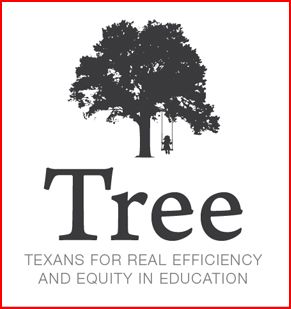We will have one big school finance lawsuit, not multiple separate suits.
State District Judge John Dietz ruled on Tuesday that the claims from Texans for Real Efficiency and Equity in Education, a group of charter school supporters and parents, belong in the lawsuit. The decision ensures that case will proceed to trial on Oct. 22.
The group, referred to as TREE, argues that the current cap on new charter schools stifles competition and maintains that large swaths of the education code foster waste and inefficiency in traditional public schools.
The Mexican American Legal Defense and Educational Fund, which is representing one of the six groups of plaintiffs, petitioned to remove TREE, asserting that its concerns are political issues that need to be addressed by the Legislature, not constitutional issues that must be decided by the courts.
MALDEF lawyer David Hinojosa said on Tuesday that TREE had “cherry-picked” elements of the education code with which its leaders disagree politically, and it was asking the court to “redesign the system of education to suit their specific needs.” Those elements include minimum salary requirements and certain job protections for teachers.
Dietz, however, said TREE was not asking the court to impose its own judgment over that of the Legislature. Rather, TREE wants him to review components of the education system that it believes to be unconstitutional.
MALDEF was the only plaintiff to contest TREE’s presence in the lawsuit. Texas Politics notes that TREE still has some homework to do.
In his ruling, the judge noted that Enoch and his party “have not asked the court to dictate a particular course of action. (They) asked the court to review different aspects of the public school system to determine if they meet the constitution.”
Hinojosa argued that [TREE lawyer Craig] Enoch’s side, which includes parents and the Texas Association of Business, don’t have a legal standing in the case.
Dietz disagreed.
“The court can certainly concede that Texas parents and business owners are and will be injured by a public school system that fails to achieve a general diffusion of knowledge,” the judge said.
He did instruct Enoch to clean up his pleading to specifically explain how his clients could be injured in an unconstitutional school funding system.
Failure to fix that issue will allow the judge to dismiss them from the case, Hinojosa said later.
TREE has its own agenda and should not be trusted. The trial begins October 22. Mark your calendars.
One more thing, from the Statesman story:
Research released on Tuesday from Pennsylvania State University education professor Ed Fuller showed that fifth- and sixth-graders entering high-performing charter schools already had higher reading and math scores than their peers in traditional public schools. Fuller said that difference might explain why some charter schools register better achievement scores when compared with traditional public schools.
In addition, Fuller noted that charter schools also enrolled far fewer students with special needs, such as those learning English or who have disabilities.
“This simply makes it easier for a school to claim success as well as for a school to operate efficiently and effectively since students are more homogeneous and have fewer needs,” wrote Fuller, a former University of Texas researcher.
The study was commissioned by the Texas Business and Education Coalition in advance of a state Senate committee hearing Friday on the issue of charter schools and school choice.
That ought to add some fuel to the debate fires. As noted yesterday, the Harmony schools spend a lot less money than the traditional public schools do on such students. I’ll be interested to see what comes out of tomorrow’s hearing.

